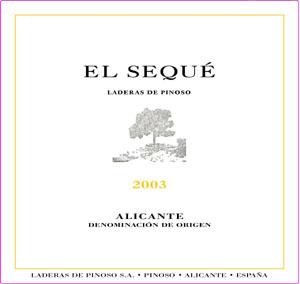2003 Alicante Red Blend
El Seque El Sequé is a captivating red blend from the picturesque Alicante region, celebrated for its rich, ruby-red color that reflects the warmth of the Mediterranean sun. This 2003 vintage showcases an impressive harmony of robust fruit flavors, with notes of ripe blackberries and dark cherries that dance gracefully on the palate. The wine's medium body is complemented by a pleasing level of acidity, adding a delightful brightness that enhances its allure. Tannins are present but well-integrated, providing a subtle structure without overwhelming the overall experience. Moreover, this wine is beautifully dry, making it incredibly food-friendly and versatile for various culinary pairings. With its generous character and depth, El Seque El Sequé is a true testament to the skillful craftsmanship found in Alicante's winegrowing tradition.
El Seque El Sequé is a captivating red blend from the picturesque Alicante region, celebrated for its rich, ruby-red color that reflects the warmth of the Mediterranean sun. This 2003 vintage showcases an impressive harmony of robust fruit flavors, with notes of ripe blackberries and dark cherries that dance gracefully on the palate. The wine's medium body is complemented by a pleasing level of acidity, adding a delightful brightness that enhances its allure. Tannins are present but well-integrated, providing a subtle structure without overwhelming the overall experience. Moreover, this wine is beautifully dry, making it incredibly food-friendly and versatile for various culinary pairings. With its generous character and depth, El Seque El Sequé is a true testament to the skillful craftsmanship found in Alicante's winegrowing tradition.




